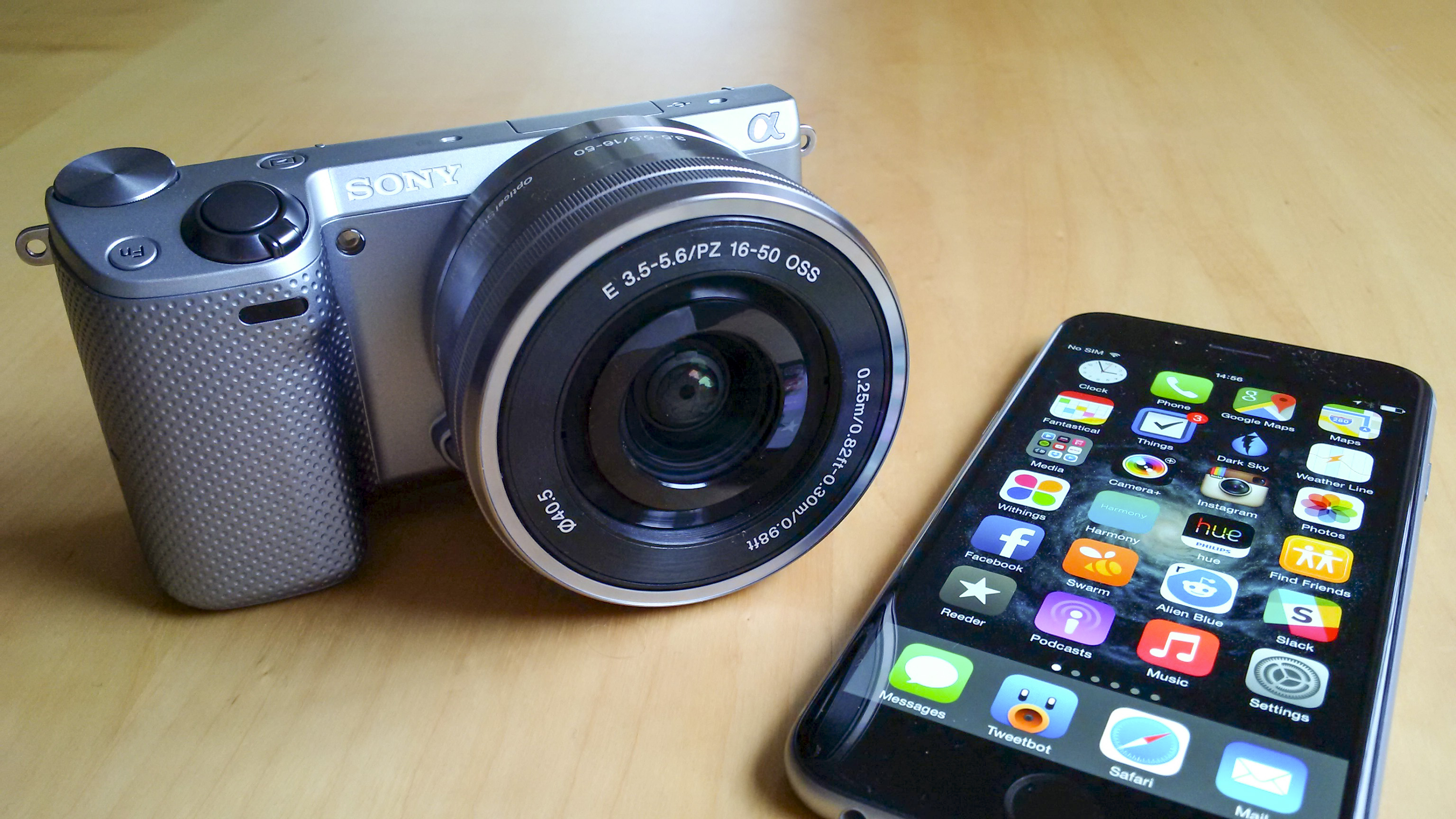I love my smartphone's snapper, so why did I just buy a dedicated camera?
The phone still isn't good enough

I've taken photos with cameraphones and smartphones for years, and I don't just mean throwaway snaps of pets, friends falling over and amusing foreign biscuits. I mean Photos with a capital P; proper, considered, composed photos that I'm proud of.
The camera in my current phone, an iPhone 6, is superb, capable of taking truly wonderful pictures even just on a purely technical level, before you consider how exciting and empowering it is that I can immediately edit and share them with it too.
Yet I've just got a new camera, a dedicated compact system camera.
I'm not a professional photographer, and this is in any case an age when independent films (and even an episode of the sitcom Modern Family) are being shot with iPhones. What's more, smartphones have utterly and fundamentally changed the camera market. Look at Flickr and you'll see that the most popular cameras its members use – the iPhone 5s, iPhone 5, Galaxy S4, Galaxy S5 and iPhone 6 – are all smartphones.
So why did I want a dedicated camera?
Well, there is a common trope: the best camera is the one you have with you. In other words, any camera is better than no camera when something happens you want to capture. It's hard to imagine an explanation for the spectacular explosion in the number of photographs taken and shared which doesn't ultimately boil down to the fact that we all carry cameras in our pockets now.
Good enough is, well, good enough. It's certainly true that I'll always have my iPhone with me but will only take my new Sony out when I specifically know I am in the mood to take Photos.
Get daily insight, inspiration and deals in your inbox
Sign up for breaking news, reviews, opinion, top tech deals, and more.
The thing is that when I do want to take Photos, I yearn for something better than my iPhone; 'good enough' actually isn't good enough. I want photos so good you don't for a moment think about the camera that took them.
Although the cameras in our smartphones are dazzling technical achievements, astonishing examples of how with the application of enough engineering we can fight the inherent limitations in small sensor sizes and cramped optics, they're still constrained by those very factors.
This means that performance in low light is poor, it means that (a few crazy-eyed outlier models excepted) you're stuck with a single focal length, it means in most cases that you can't get rich, creamy bokeh from a wide-aperture lens. It means your creative control is curtailed, and it means, ultimately, that although the pictures you get out of them can be good enough, they could be so much better.
I've lost count of the number of photos I've seen hastily shared to Facebook of new babies and weddings and once-in-a-decade family get-togethers where the pics are noisy and blurry, or the subject is lost in a sea of irrelevance because there's no zoom, or the colours are drab.
Now, yes, some of these problems would persist whether the photographer was holding a dinged-up Samsung Galaxy S or Canon EOS 5D. And yes, it takes a while before you can understand the effect of tweaking aperture or ISO or exposure compensation in order to get the best results out of a dedicated camera.
Understanding these things is worth the effort, though, and both when working creatively to take 500px-worthy shots, and when simply recording important events in my life, I want the best camera I can get hold of.
This doesn't mean, of course, that I have stopped using my iPhone. It will always be with me, if I'm taking pictures to tweet, post to Instagram and so on, then naturally it just makes sense to use the iPhone. And it is, after all, good enough. Some events, though, some views, some people, some fleeting moments – some things deserve better than that.
Of course, smartphone cameras will keep on improving. Indeed, we're probably already at the point where the distinction of a smartphone camera is beginning to be irrelevant, and not just because of their ubiquity. And this isn't some nostalgic, curmudgeonly pean to 'real cameras' or the painstaking craft of photography.
At least for the foreseeable future, though, there's still a place for cameras. It's going to take a major breakthrough before I can hope for a smartphone with superb macro, an f/1.8 aperture, and a 210mm zoom – yet I can add all those to my new camera with different lenses.
Ultimately, this is about treating subjects with respect, even reverence, and when you look back at the first photo of your daughter, the last photo of your mother or how your best friend looked on the day you married them, the last thing you should notice are the limitations of the camera that took the shot.
What about you? Do you think dedicated cameras are still relevant, or are they too much hard work for not enough advantage? If you never use your smartphone's camera for any serious photography, never use anything else, or something in between, let us know in the comments.